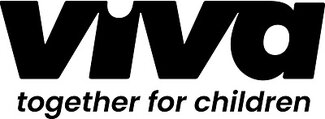Viva is an international Christian children’s charity passionate about releasing children from poverty and abuse. Viva’s vision is to bring lasting change to vulnerable children by growing locally-led networks of churches and organisations.
To contact, please fill out the contact form available here.
Where they operate
Organization Type
Main Areas of Work
What They Do
Location
Global
Implementation
Directly
Partners
Viva's work is focused around seven main solution strategies:
- Transforming children through education They help children to catch up on their schooling and equip them for the future. In Uganda they re-educate marginalised girls, train teachers and engage community mentors to develop parenting skills.
- Keeping children safe They protect children in Central America from violent, abusive situations in their homes and on the streets and advocate for change.
- Making child trafficking history They provide homework clubs, assist women’s businesses and spread the anti-exploitation message – all to make children and parents in Asia less vulnerable to trafficking recruiters.
- Resettling children into families They resettle abandoned children in Uganda into loving families, and provide these families with counseling, income-generating advice and practical support.
- Unlocking the potential of girls They train and support churches in India to challenge gender discrimination, report abuse and raise girls’ self-esteem.
- Protecting children in emergencies They give practical relief and psychosocial support for families following disaster and conflict, train community leaders and set up child-friendly spaces.
- Helping young people thrive They catalyse a collaborative response from local churches and other providers in Oxford, UK to the complex needs of young people in order to increase their self-esteem and resilience.
Residential Care Service Transition Support
Location
Uganda, Kenya, and Zimbabwe
Implementation
Directly
Supports they have offered, or plan to offer, include:
- Introducing the importance of family care and reintegration to leaders in the organization
- Strategy and planning for the transition
- Donor and board engagement
- Community awareness raising and engagement
- Partnerships
- Government engagement and linking to systems reforms
- Assessments of children and families
- Family tracing
- Preparing children and families for transition
- Social work or case management training or support
- Staffing adjustments or training
- Developing new programs, including:
- Family and community strengthening
- Alternative family care (including kinship care, foster care, adoption)
- Advocacy
- Building strong marriages and parents
- Provide funding for the transition
- General coaching or consultation
- Onsite training
- Online training
- Onsite visits/meetings
- Phone calls/video conference
- Provision of standards and written guidance or tools for transitioning
- Connecting with others or building a network
Viva plans to support transitions in Uganda, Kenya, and Zimbabwe. Our approach to supporting residential care centers to transition to family care involves six steps:
- First response: keep the family together and prevent separation
- Second response: emergency care
- Third response: reunification and kinship care
- Fourth response: foster care
- Fifth response: domestic adoption
- Sixth response: inter-country adoption

